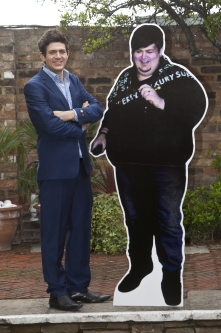
How you shop and the choices you make in the supermarket could have a major impact on your ability to manage you weight, according to a survey by Slimming World and YouGov.
The survey looked at the food buying habits of 2,063 UK shoppers and measured them against their Body Mass Index (BMI) data to see whether the ability to plan ahead and stick to a shopping list had any correlation with people’s waistlines.
“When it comes to healthy food shopping, it’s all about having a good balance,” says Jenny Barber, Slimming World Nutritionist. “If you don’t plan ahead at all you can easily end up with an unhealthy shopping trolley. However, while planning ahead is important, you need to have some flexibility if you’re going to keep up a healthy lifestyle in the long term.
“If you’ve developed unhealthy shopping and eating patterns over a long time, then making changes on your own can seem like an impossible task. The good news is that healthy shopping and healthy eating in general are habits that can be learned. That’s why the strong support network of a slimming club, where people share experiences, difficulties, ideas and practical knowledge with others who face the same challenges can help to make long term behaviour changes.”
The four shopper types are:
-
Controllers – Likely to be overweight
Despite sticking rigidly to their shopping lists, never making impulse purchases and not being swayed by special offers, these shoppers are the most likely to be slightly overweight. This is likely to be because they are too hard on themselves most of the time, leading them to have the occasional blowout as a result. -
Flexible Planners – Likely to be a healthy weight
Following their list but giving themselves the freedom to enjoy a little of what they fancy and take advantage of special offers, these shoppers are comfortably the most likely to be a healthy weight. This is likely to be because planning ahead gives them a structure to follow, while allowing themselves some flexibility ensures that they’re less likely to feel deprived. -
Drifters – Likely to be overweight
Although these shoppers have a loose plan, they often drift away from it when something takes their fancy or if they see a bargain special offer. These shoppers are most likely to be overweight.
-
Impulse Buyers – Likely to be very overweight
These shoppers don’t plan ahead, preferring to make spontaneous choices depending on what they fancy at the time and what’s on offer. These shoppers are the most likely to be very overweight, putting their health at significant risk.
 Matt Briggs, who lost a staggering 17st 10½lbs with Slimming World, says: “Before I lost weight I would often just buy whatever I fancied at the time or whatever was on special offer. There was no structure to my shopping and I never planned my meals.
Matt Briggs, who lost a staggering 17st 10½lbs with Slimming World, says: “Before I lost weight I would often just buy whatever I fancied at the time or whatever was on special offer. There was no structure to my shopping and I never planned my meals.
“Now I plan my shopping I have a much more varied diet and, because I’m buying more of what I need and less of what I don’t, it’s cheaper too. I’ll always allow myself some flexibility to get a bit of what I fancy or take advantage of special offer though, as I know from experience that being too strict on yourself doesn’t work. I think that while the old me, when I weighed 31st, was definitely an Impulsive Buyer, there is no doubt that I’m now a Flexible Planner. Planning ahead means I have a structure but I can still enjoy the odd chocolate or dessert and, with my sweet tooth, that’s important for long term success.”
The video below features interviews with nutritionist Jenny Barber and case study Matt Briggs, who was named Slimming World’s Greatest Loser 2012 after losing a staggering 17st 10½lbs.

